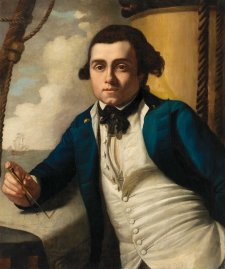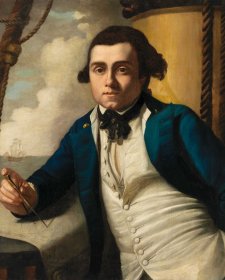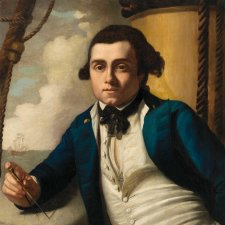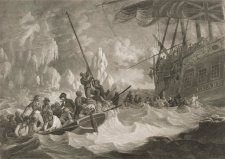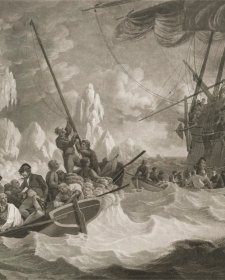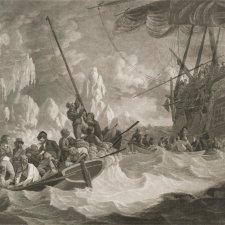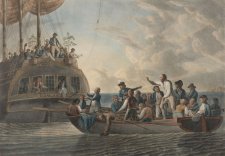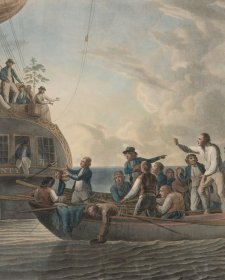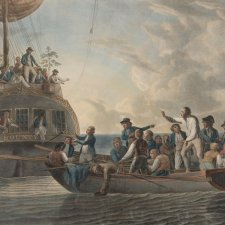William Bligh (1754-1817), naval officer, was born in Plymouth and first went to sea at around the age of eight. Aged sixteen, he joined the Royal Navy, and six years later he was appointed to accompany Cook's third voyage as Master of HMS Resolution. Bligh's main task was to make charts, and on the voyage he honed the navigational skills that would become - along with volatility and authoritarianism - his best known characteristics. Subsequently promoted to Lieutenant, he served in the West Indies before being appointed commander of the Bounty. The Bounty left England in December 1787 to collect breadfruit from Tahiti, which it reached 11 months later. Soon after leaving the island, in April 1789, the Bounty's crew, led by the second-in-command, Fletcher Christian, mutinied. Bligh and eighteen supporters were set adrift in an open boat with minimal provisions and no maps, but he successfully navigated over 3000 miles to Timor, during the voyage charting part of the coast of Australia. On his return Bligh was honourably acquitted by a court martial, while three of the ten mutineers brought to trial in England were hanged. For Bligh, the upshot of the mutiny was a reputation for tyranny, which would continue to disrupt his career. Through Sir Joseph Banks, Bligh was appointed Governor of NSW, coming to the post in August 1806 with a brief to curb the trade in rum and the influence of powerful, wealthy colonists. Again, despite his general integrity, Bligh's abrasive manner and rigid adherence to orders created conflict over issues such as land, town planning and convict labour. These led ultimately to Australia's first and only military coup, the 'Rum Rebellion' of January 1808, wherein Bligh was deposed by the NSW Corps. He was held under house arrest in Sydney for more than a year; his replacement, Lachlan Macquarie, did not arrive to take up the Governorship until December 1809. After returning to England, Bligh was eventually promoted to Vice Admiral. He died in London, survived by his six daughters.
- About us
- Support the Gallery
- Venue hire
- Publications
- Research library
- Organisation chart
- Employment
- Contact us
- Make a booking
- Onsite programs
- Online programs
- School visit information
- Learning resources
- Little Darlings
- Professional learning
